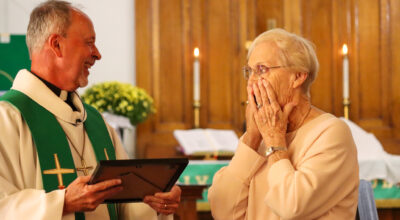NC presidential primary date may change again
Published 12:00 am Tuesday, January 28, 2014
RALEIGH (AP) — North Carolina is likely to tinker with its decision to move up the state’s presidential primaries for 2016 to gain nominating influence now that national Republicans have reinforced rule changes to punish maverick states, a key lawmaker said Monday.
The Republican National Committee approved late last week a new selection process for its nominee that consolidates the primary season, but also sets tough penalties for state parties that hold their primaries before March 1. Four states retained their exemptions.
The General Assembly last summer approved a broad elections overhaul law that among other provisions scheduled the state’s presidential primaries for all parties for the Tuesday immediately after South Carolina’s, — probably mid- or late February. North Carolina’s presidential primaries have usually been held with primaries for other races in early May. The new North Carolina law linked the state’s presidential primary date to South Carolina, as long as South Carolina held its primary before March 15.
Rep. David Lewis, R-Harnett, who is chairman of the House Elections Committee, said he expects legislation will be considered this spring that would make clear that North Carolina couldn’t hold its primary election until March 1 at the earliest, in keeping with the new rules.
The Republican National Committee decided last Friday in Washington that states that break the rules would lose most of their convention delegates, who formally choose the presidential nominee. North Carolina had 55 delegates to the 2012 convention, which were distributed to candidates proportionally based on their showing in the primary. The amount would fall to 13 if the state defied the RNC.
Lewis, a Republican National Committee member, said he would expect other lawmakers — particularly fellow Republicans in the majority at the General Assembly — to adjust the primary date “to make sure that North Carolina had its full delegate strength and to fully participate” in the nomination process.
The South Carolina Republican Party was unhappy with North Carolina’s decision last summer to align its primary so closely. The GOP there wanted to ensure its first-in-the-South designation, which last week’s rules are designed to do. South Carolina, New Hampshire, Iowa and Nevada are expected to schedule the first GOP primary contests in February 2016.
“These rules make it very clear that only four states can go in February,” South Carolina GOP Chairman Matt Moore said Monday, adding he’s hopeful that any other state “that currently had primary elections scheduled in February will move them.”
Moore said it’s “very likely” the 2016 GOP presidential primary in his state will be held on Feb. 20 or Feb. 27, 2016. If he chose Feb. 27, North Carolina could conceivably still hold its primary the following Tuesday, on March 1.
That may not sit well with Moore, who last year said he was concerned North Carolina bumping up against the South Carolina primary could diminish his state’s importance. Moore said Monday bunching up states discourages “underfunded and upstart” candidates by requiring large monetary resources to run in many states simultaneously.
Lewis said Monday he didn’t have a problem with holding a March 1 primary that’s only three days after the South Carolina primary, which would already have nominee hopefuls running television ads in border markets like Charlotte, Wilmington and Asheville.
“There’s already significant overlap. I don’t see it would cause any hard feelings,” Lewis said.
National Democrats had a similar pecking order for states in 2012 that penalized state parties that moved too much up the presidential primary ladder. Lewis said he would consult with North Carolina Democrats to ensure any tweak in the law wouldn’t result in delegate losses or other penalties for them. The Democratic National Committee is still working out the 2016 primary schedule.
The state Democratic Party criticized Republicans last summer for the presidential primary change, saying jumping toward the front of the line could decrease the state’s voice on the national stage. Party officials will work to ensure the primary plans comply with their party rules, too, so as to avoid penalties, spokesman Micah Beasley said Monday.




